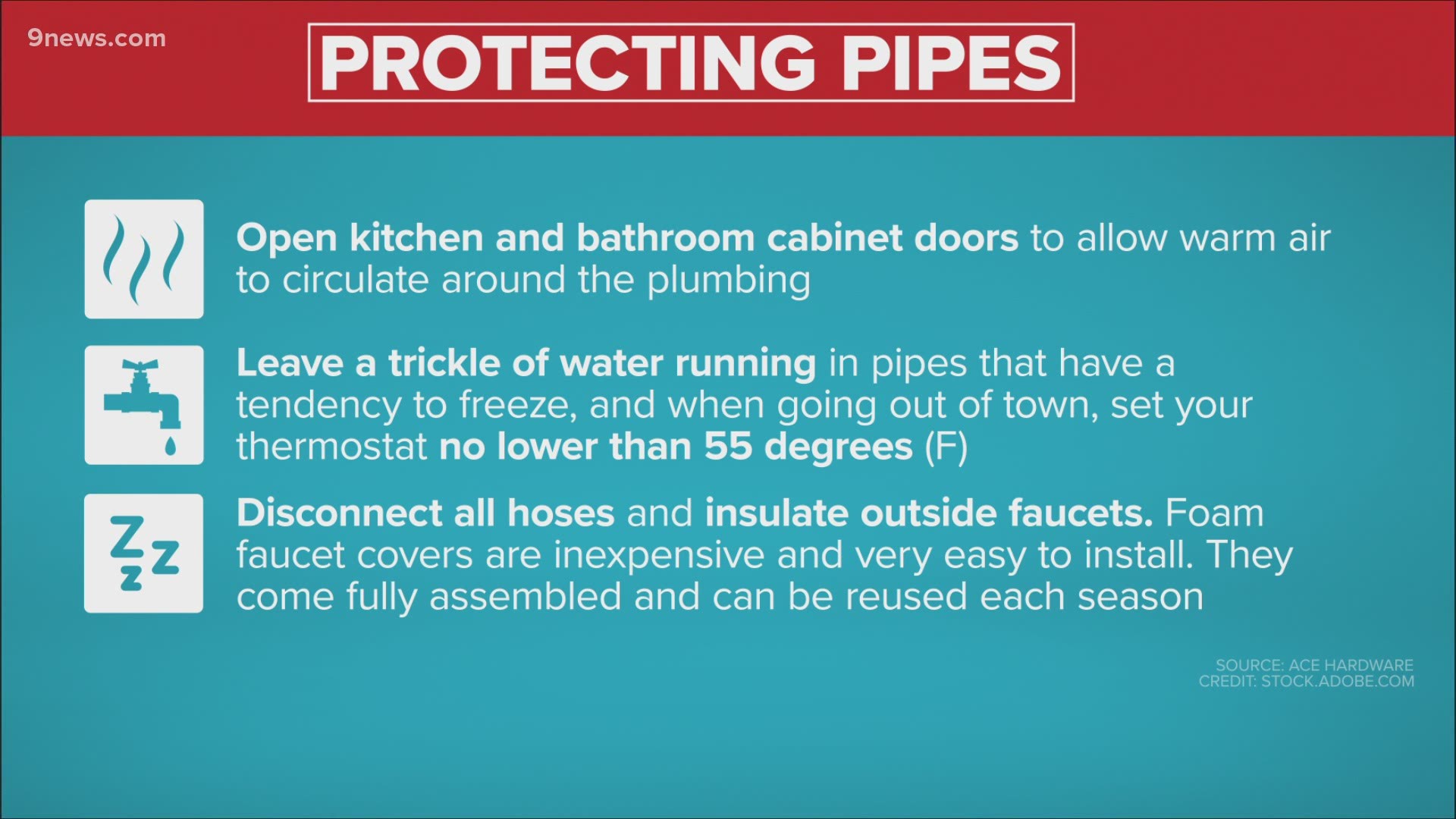DENVER — Last weekend's sub-zero temperatures caused a lot of problems with pipes freezing. Frozen pipes can be more than just an inconvenience to a resident, if the pipe breaks due to a freeze, it can cause serious damage to a home when the water thaws.
> Video above: Plumbers deal with frozen pipes across metro Denver due to freezing temperatures.
Here are some tips from Denver Water to prevent your water pipes from freezing — and what to do if they burst.
Every resident should be familiar with where the water shutoff valve is located in their home. This is critical so it can be found quickly if water does start to pour out of a broken pipe.
Denver Water suggests if temperatures drop below -5 degrees Fahrenheit, residents should take precautions to help prevent pipes from freezing.
Tips to prevent frozen pipes
- Open cabinet doors underneath the sink to allow the household air to keep pipes warm.
- If there is an attached garage to the home, keep those doors closed. "Occasionally, plumbing is routed through this unheated space, leaving it vulnerable to winter's worst," according to Denver Water.
- Find the faucet furthest from where water enters the house and let it to drip slowly. Allowing water to move through the pipes will reduce the chance of water freezing. Set a bucket in the sink to collect the water that drips, so it can be saved for other household uses.
- Set the thermostat above 65 degrees if you are leaving the house for multiple days.
What to do if a pipe is frozen
- If a pipe has already frozen, Denver Water said it is important to thaw the pipe immediately. Be sure to shut off the water to the house before starting to thaw the pipe; this will prevent any potential flooding if the pipe has been broken.
- Do not to use any high intensity heater such as a blow torch, as these can damage the pipes. The best practice is to use a hair dryer, or a space heater, to blow hot air into the area and thaw the ice inside the pipes. Pipes that are warmed too fast may break, according to Denver Water.
- Check the effected area for leaks after thawing to make sure the freeze didn't damage your pipes.
- If access to the frozen pipe is tricky, you do not have the proper tools or the pipe has broken, contact a plumber.
SUGGESTED VIDEOS: Local stories from 9NEWS

